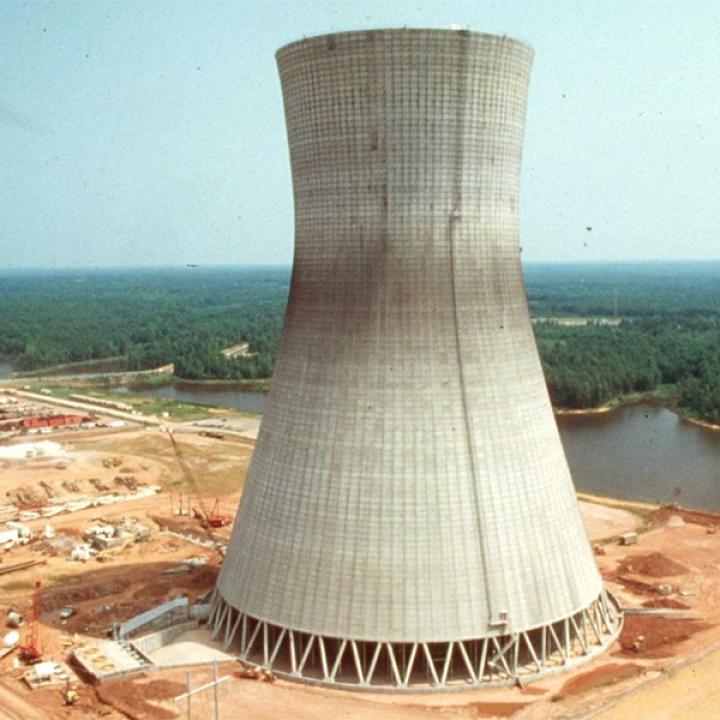
- Policy Analysis
- Fikra Forum
U.S. Adherence to The Nuclear Gold Standard Would Push Saudi Arabia Toward Other Countries

Meetings between U.S. Secretary of Energy Rick Perry and Saudi negotiators have begun paving the way for U.S. companies to sell nuclear technology to the kingdom. The Saudis are likely to reject any deal that does not give them the option of enriching uranium at a low level. So far, however, the U.S. insists that its “gold standard” prohibits this option, as in the “123” deal it reached with the UAE.
The recent U.S. withdrawal from the Iran nuclear deal, which recognized limited Iranian enrichment activities, may even strengthen this argument. Christopher Ford, Trump's special assistant on nonproliferation, has said that the nuclear deal with Iran makes it difficult for Washington to insist on limiting the capabilities of other countries Israel and some others also apparently oppose Saudi uranium enrichment. But Washington's insistence on imposing preconditions on Saudi nuclear activities may be counter-productive in countering nuclear proliferation. Instead, Russia, China, France or South Korea might supply the kingdom's nuclear ambitions, including some enrichment capacity.
In 2016, China signed a deal to invest $2.43 billion to build an industrial cluster of nuclear manufacturing equipment in Saudi Arabia. Russia also wants to expand its limited footprint in the region, with an attractive offer to build nuclear reactors in Saudi Arabia. Russia's ROSATOM signed a roadmap for cooperation in the peaceful use of nuclear energy with the King Abdullah City for Atomic and Renewable Energy( K.A.CARE). In other words, Washington may not have the unilateral ability to prevent Saudi Arabia from enriching uranium.
Although Riyadh is keen to strengthen political and economic ties with Washington, it will probably look for other suppliers if America insists on the gold standard. For Moscow to gain such a foothold in Saudi Arabia would be a blow to U.S. regional influence and prestige. Moreover, unsupervised Saudi enrichment capacity could prompt countries like Jordan, Turkey, and Egypt to seek similar rights. Standards with Saudi Arabia different from those set by America on the UAE might set a precedent for the renewal of the U.S. nuclear energy agreement with Egypt, due in 2021, and with Turkey, which will be ready to renew in 2023. This could signal American approval for Mideast countries to begin approaching nuclear weapons capability, and incite a regional nuclear arms race.
Given the strong domestic pressures in both Saudi Arabia and the U.S., a compromise may be reached through possible American participation in the Saudi civil nuclear program. President Trump proposed a project to build nuclear power plants in Saudi Arabia, to be led by American companies such as Westinghouse Electric Co., in return for allowing uranium enrichment on Saudi soil. The U.S. would thus be fully in control of the nuclear fuel cycle in Saudi Arabia. This is the best option for the U.S. to reduce the possibility of Saudi Arabia resorting to clandestine activity or to other countries unlikely to demand that Riyadh refrain from enrichment.
Right now, a consortium of U.S. companies led by Westinghouse is competing with bids from Russian, Chinese, French and South Korean companies for tenders that could eventually build a total of sixteen reactors over the next twenty-five years. Washington may ease its stance on Saudi uranium enrichment to bolster Trump's pledge to renew the American nuclear industry. Thus commercial and geopolitical arguments combine to favor some U.S. flexibility on this contentious issue.
A flexible nuclear deal with Saudi Arabia could still give Washington veto power over any dangerous levels of enrichment of nuclear fuel in Saudi Arabia, roughly in line with the continued international limits on Iranian enrichment. Although the Saudis have rejected the restrictions of the gold standard, they are interested in resuming talks on an agreement acceptable to the United States and its concerns with preventing nuclear proliferation. Riyadh would prefer to have Washington's support for developing its nuclear power program in accordance with the rules of the Non-Proliferation Treaty, rather than secretly developing it with the help of other countries.
So the main obstacle to Saudi Arabia signing a nuclear deal with the U.S. Congress Even if an agreement is reached between Saudi Arabia and the Trump administration, Congress could either block the deal or add items that would prevent the United States from selling the technology needed for Saudi Arabia to enrich uranium. Therefore, consultations with Congress on this issue are urgently required to set the stage for a realistic and mutually beneficial compromise -- one that would keep the U.S. in the lead position with its key Saudi ally, in the nuclear as well as in other vital sectors.


